Event Review – IEEE Webinar: Simulation and Operational Analysis of Integrated Energy System Based on a Unified Model in Time Domain
The University of Birmingham IEEE Student invited Mr Suhan Zhang to give a talk on the topic of ‘Simulation and Operational Analysis of Integrated Energy System Based on a Unified Model in Time Domain’ on Friday, 6th January, 2023. Mr Suhan Zhang received his B.S. degree in electrical engineering from North China Electric Power University, China, in 2018. He is currently working toward the PhD degree from the School of Electrical Engineering, Southeast University, Nanjing, Jiangsu, China. He is also a visiting PhD student at School of Engineering at University of Birmingham, the United Kingdom. His research interests include modelling, simulation and operational analysis of integrated energy systems. There are totally 12 attendees both online and in-person. Professor Xiao-Ping Zhang from the School of the Engineering, University of Birmingham as well as the Counsellor of the IEEE Student Branch at the University of Birmingham also attended this event.

To start the event off the host, Dr Nan Chen, the Chair of the UoB IEEE Student Branch, welcomed everyone and introduced the student branch, followed by an introduction to the speaker, Mr Suhan Zhang.
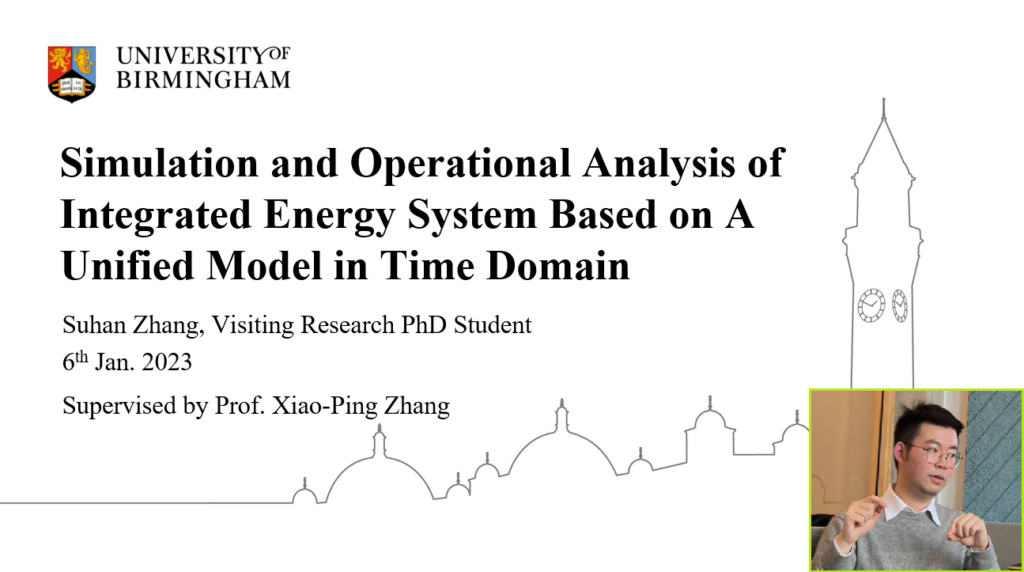
Mr Suhan Zhang firstly gave an introduction to the background and motivations of studying integrated energy system in terms of energy distribution and conversion under the global decarbonization requirements. Then, he started his presentation in the following aspects: 1) The basic Integrated Energy System (IES) model; 2) The Unified IES model in time domain; 3) Dynamic simulation of Multi-Energy Sectors; 4) Applications of the unified modelling and simulating technologies; 5) Conclusions and future challenges.
During the first part, Mr Suhan Zhang gave an overview of the basic IES model which contains the network model and the equipment model. These models were explained in the following three aspects:
- Power system model, which categorized by time scale of responding, e.g., electro-magnetic transient (from 10e-6 to 10e-2 second), electro-mechanical transient (from 10e-2 to 10e1 second) and mid-term/extended-term dynamics (from 10e2 to 10e 5 second);
- Gas system model, which is governed by fluid equation, applied into multi-pressure system;
- Heating system model, which is governed by Fourier equations, for mode-based systems;
- Equipment model, which is represented by element-by-element formulas using conservation law.

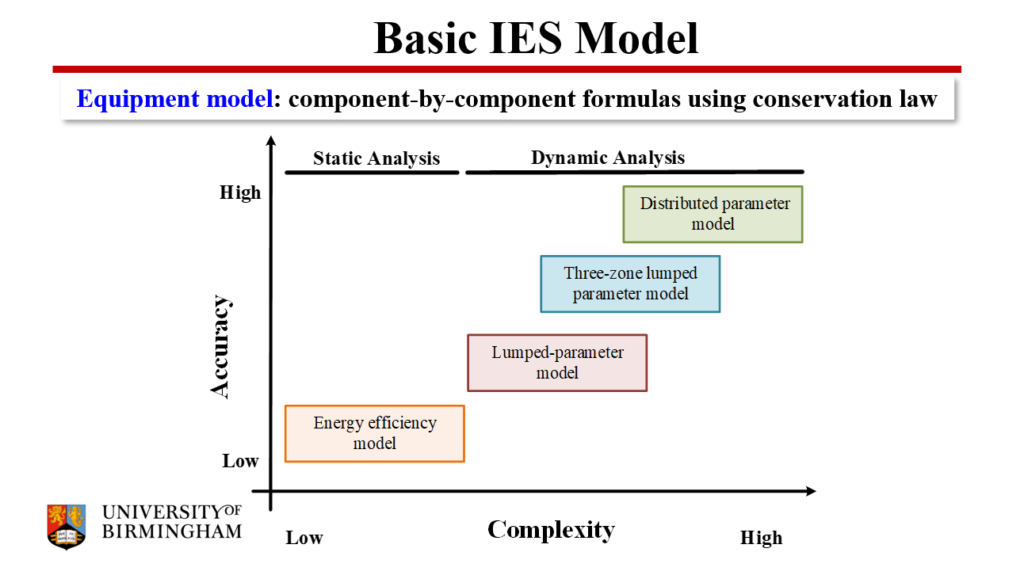
After, the unified modelling of IES in time domain was explained in detail. Mr Suhan Zhang introduced the models of Electric Power Flow, Gas Flow and Thermal Flow, followed by the benefits of the IES model in per unit domain.
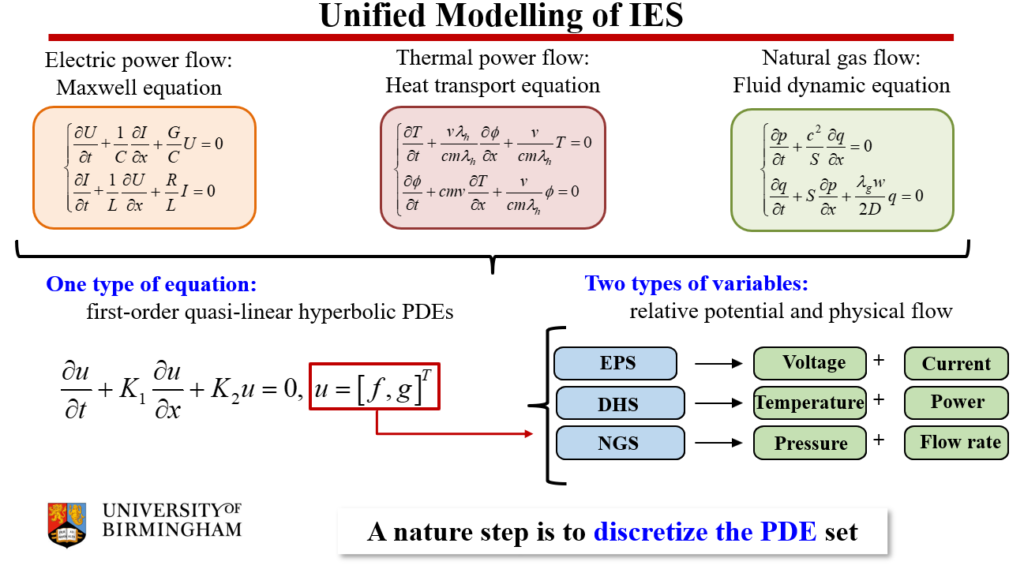
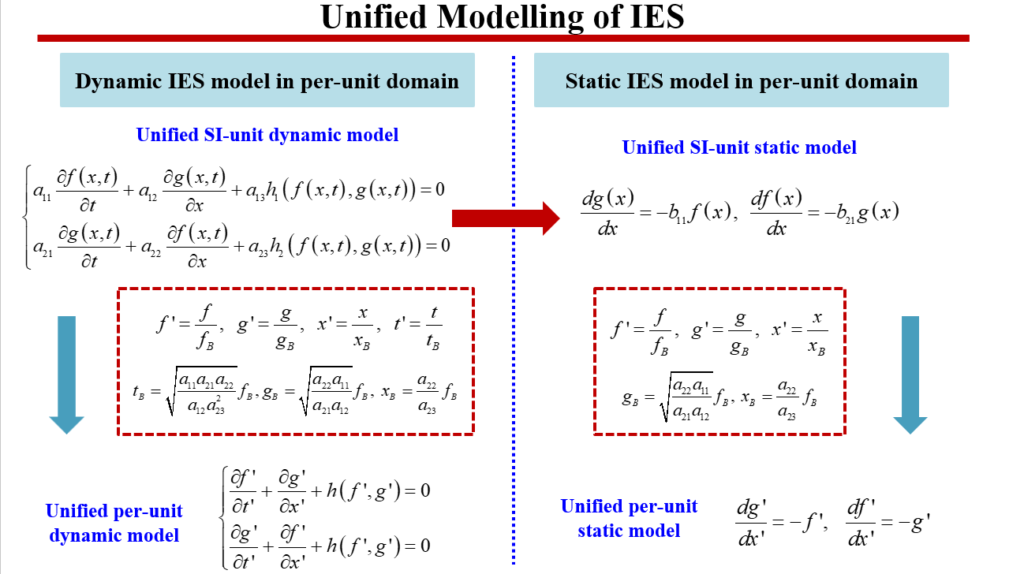
In the third part, Mr Suhan Zhang introduced the dynamic simulation of multi-energy sectors. Before presenting the simulations, two challenges were depicted: 1) Solution of complicated nonlinear dynamic systems; and 2) Interactions of multiple time scales. By considering the two challenges, two solutions were carried out: 1) Decoupling solution: solve different energy sectors alternatively; and 2) United solution: solve different energy sectors unitedly. Then an improved united solution – sequential united method was proposed, to achieve higher robustness, less computations and smaller storage. Furthermore, Mr Suhan Zhang gave a detailed introduction to the Fully Analytical Method (FAM) proposed on the basis of the modelling improvement from the heating system side. This method was proved to be more suitable for systems with arbitrary topologies, regulation modes and scales, as it could be better to avoid error and complexity compared with the numerical method.
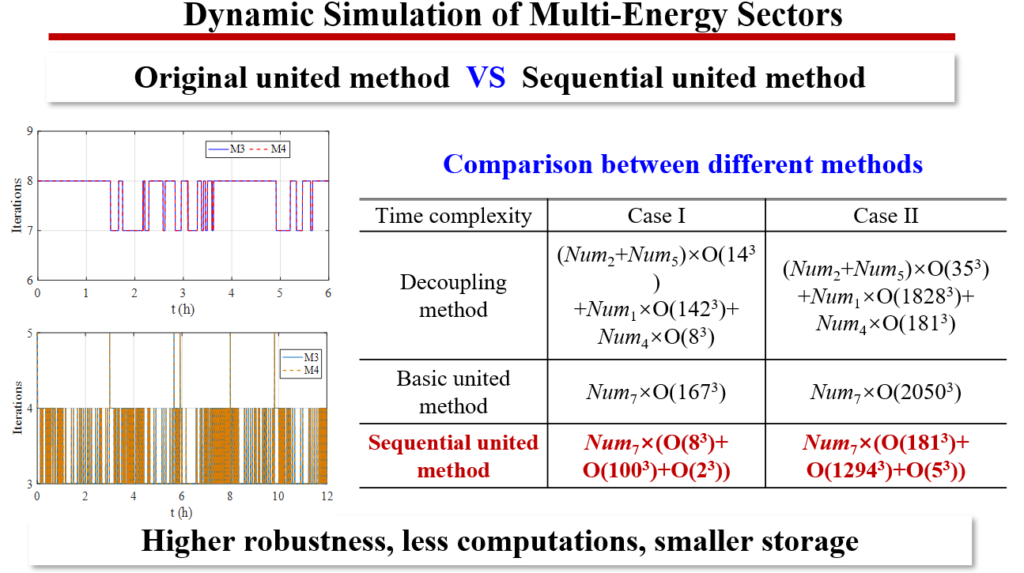
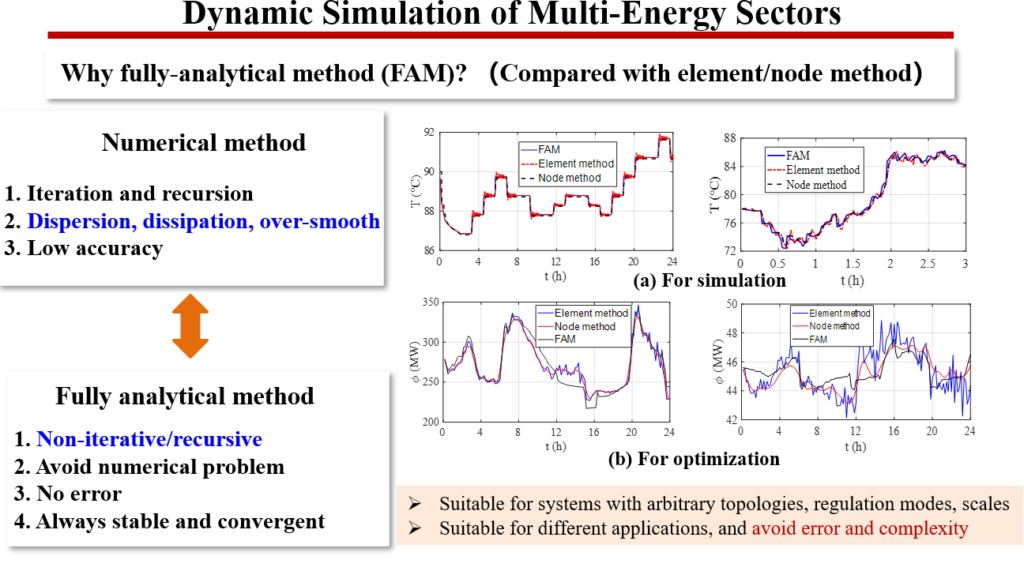
In the end, the applications of the unified modelling and simulation technologies were presented. The benefits and advantages of the proposed methods were proved via using the case studies of a 112-bus system and a 30-bus system. Finally, Mr Suhan Zhang gave a brief conclusion and proposed several future challenges we may face.
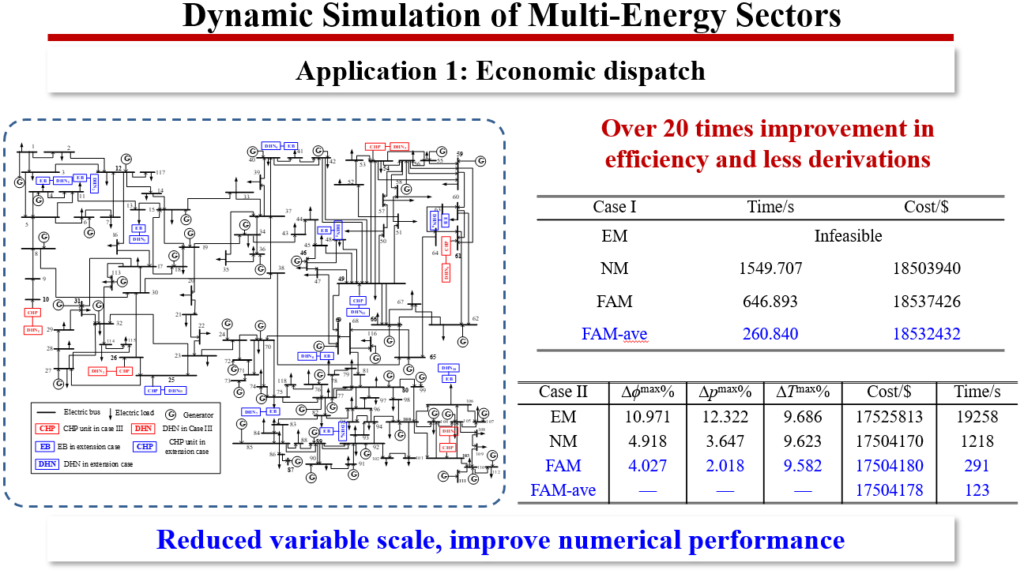
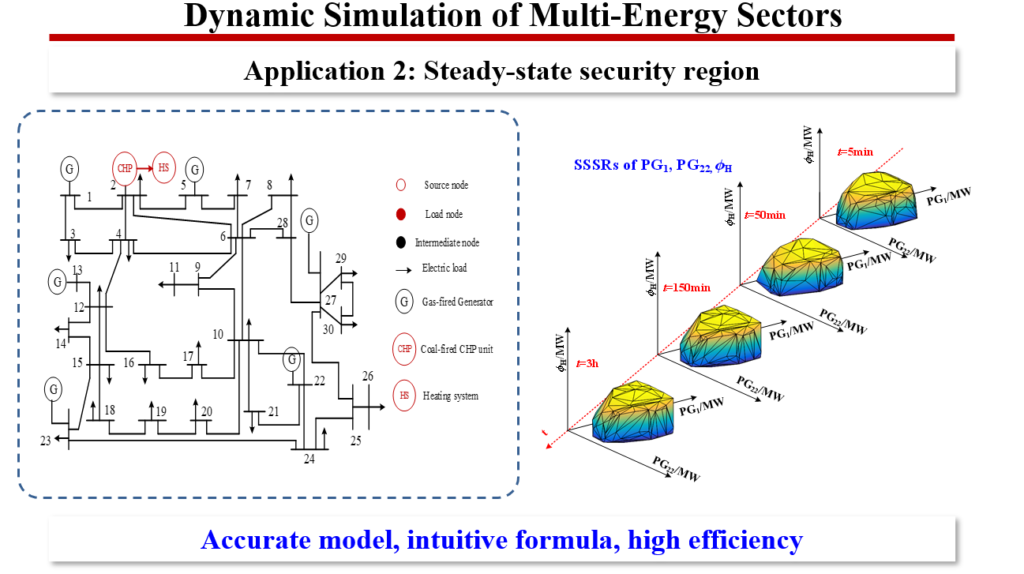
The presentation lasted for around one hour and was followed by a 30-minute Q&A session in which Mr Suhan Zhang commented in detail on questions raised by the online and in-person audience, giving insightful examples and recommended resources. Prof. Xiao-Ping Zhang also shared his valuable comments during the discussions.
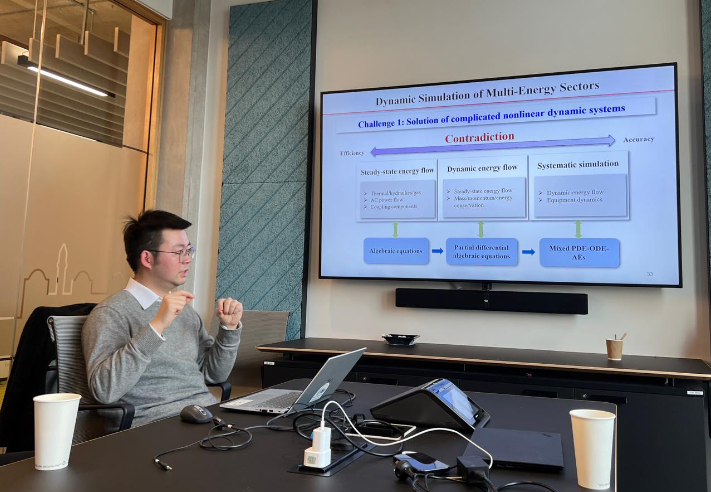
For more details about the biography of Mr Suhan Zhang and the presentation, please visit the UoB IEEE Student Branch website (https://edu.ieee.org/uk-uob/).
By Nan Chen
Chair, University of Birmingham IEEE Student Branch
